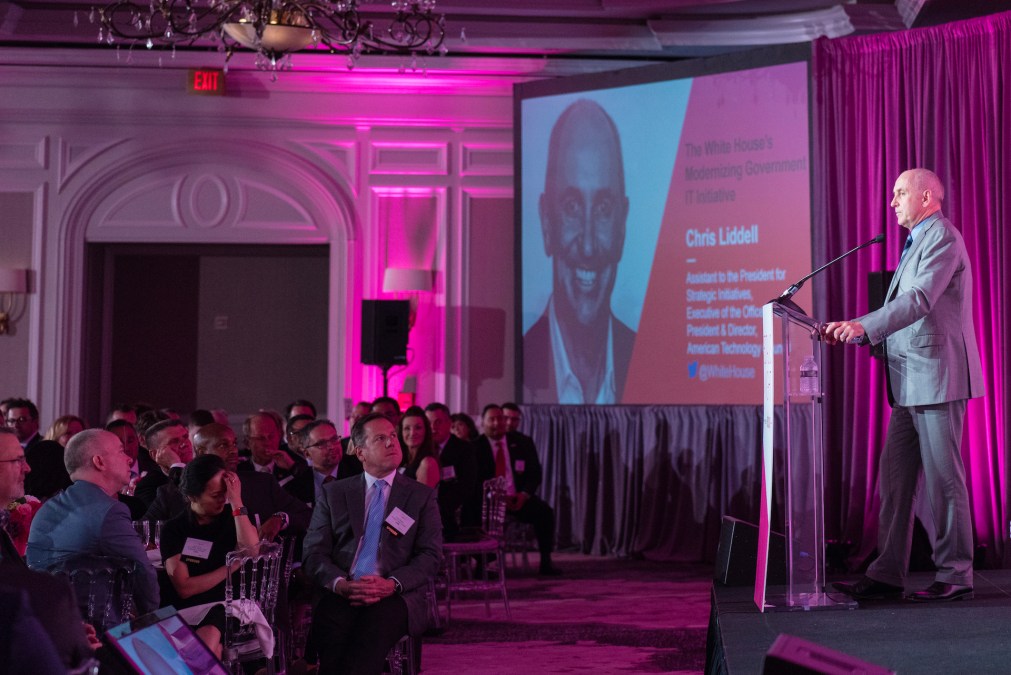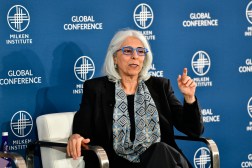Chris Liddell wants a ‘centers of excellence’ model for government innovation

Chris Liddell hopes the future of government services is one where the public sector can put its own spin on the technology advancements of the private sector.
But the White House’s director of strategic initiatives — and a key member of the Office of American Innovation — knows that the difference between innovating at a company and doing it across the entirety of the federal government is akin to pulling a tight corner in a speedboat versus turning an aircraft carrier.
“We have been making some progress,” he said, “but the way I characterize it is the progress we have been making in the government is slower than the progress we have been making in the private sector.
“So even though we have been achieving some things, we’ve been falling further and further behind,” Liddell said.
Speaking Wednesday at the Partnership for Public Service, Liddell outlined what OAI is doing to innovate within government — including modernizing infrastructure, workforce development and government services.
He added that function of government is to develop services that make citizens’ lives easier, and while both parties can agree on the final destination, the challenge is how to get there.
“If we can just do this and make individual people’s lives 5, 10, 15 or 20 percent better, that would be a huge contribution,” he said. Previous administrations have focused on improving specific areas, but for the Trump team, “it’s about the ‘how’ rather than the ‘what,'” he said.
To tackle the “how,” Liddell said OAI has used its power to convene to team up with innovation arms like the U.S. Digital Service, the General Services Administration’s Technology Transformation Service and a number of private sector technology CEOs to develop a “centers of excellence” model for government.
“We are thinking about how we bring together a structure, give it some more resources and really turbocharge it, and have centers of excellence that really push this forward progressively across the government,” he said.
The centers of excellence model revolves around a central hub that develops research and best practices for innovation to develop solutions and jumpstart initiatives across a large sector.
Liddell said the idea is in the conceptual stage at OAI, but it could generate new solutions by pooling expertise from across the executive branch and in collaboration with the private sector.
“We want to create centers of excellence and we are just thinking about where they might be,” he said. “They would start with one agency, implement something and move on to the next agency.
“If you take how we would do this in the private sector, if we were a company, is you would have a central entity which would have the expertise in a particular aspect — whether it’s cloud services or data center consolidation or whatever — and you would literally start with one division and get that done and move on to the next one,” Liddell explained.
There are examples of work that follow the basic “centers of excellence” idea within the federal government right now, including one at the Department of Commerce’s National Technical Information Service.
NTIS’s NTIS then reaches out to 35 private sector partners with the request to design custom built data analytic tools for those agencies that can be delivered within 60 to 90 days.
Liddell said that while moving innovation forward in government could take years — even beyond the tenure of the Trump administration — the centers of excellence model should be able to scale up the skills and best practices across the public sector.
“Individual agencies have expertise, but that same basic concept for things which are common across all aspects of the government or enough agencies to make sense, we should basically have the same approach,” he said.






